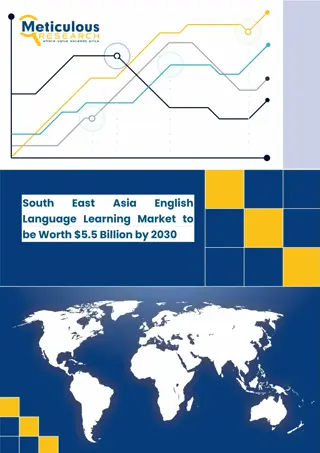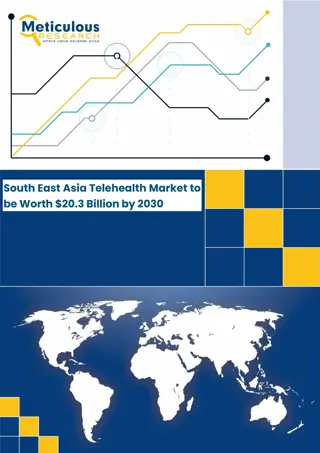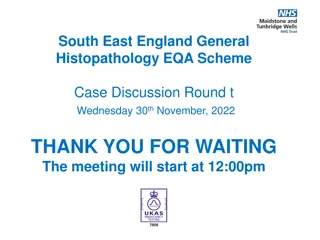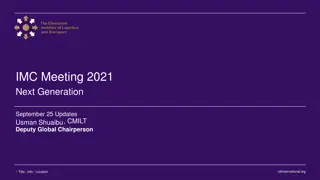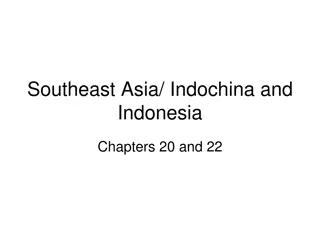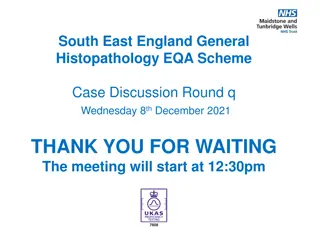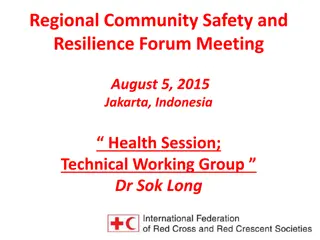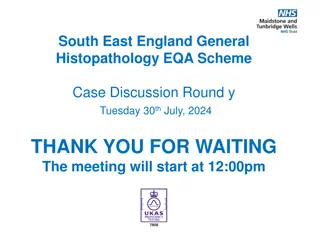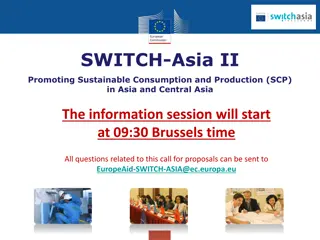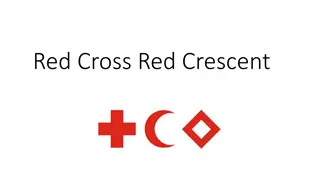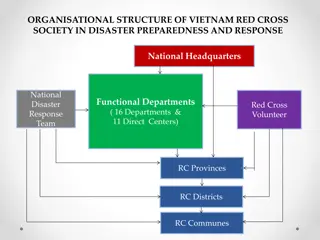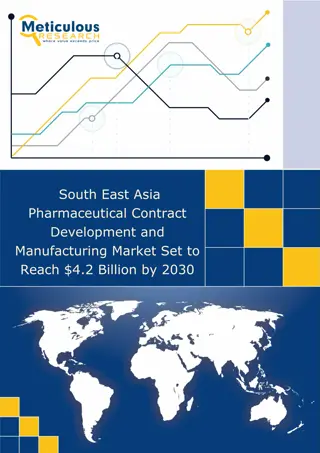Developments and Directions at the 12th Annual South-East Asia Red Cross Leadership Meeting
The 12th Annual South-East Asia Red Cross Red Crescent Leadership Meeting in Cambodia focused on key developments such as the revision of the Resilience House and Road Map, strengthening disaster management elements, enhancing regional cooperation through training initiatives, and influencing disaster laws in several countries. The meeting highlighted the importance of partnerships, advocacy, and preparedness in tackling various challenges like climate change and public health emergencies.
Download Presentation

Please find below an Image/Link to download the presentation.
The content on the website is provided AS IS for your information and personal use only. It may not be sold, licensed, or shared on other websites without obtaining consent from the author. Download presentation by click this link. If you encounter any issues during the download, it is possible that the publisher has removed the file from their server.
E N D
Presentation Transcript
12th Annual South-East Asia Red Cross Red Crescent Leadership Meeting 2015 Regional CSR Forum 2014 Key Developments and Expected Decisions and Directions Cambodia 25-27 February 2015
Key Development - Resilience House and Road Map Resilience house has been revised. NS Development/Red Cross Youth- Volunteer Management is the foundation of Resilience house. Road map has been updated by Health and DM. Cambodia25-27 February 2015
Elements of Resilience House DM Health OD DP/Response and Recovery, (Institutional Preparedness like: NDRT, RDRT, Contingency plan, Business continuity plan, Simulation exercise) CCA/EWEA ( Climate smart activities, linkage with Department of Meteorology and Hydrology for EW message, early warning system, evacuation place) DMIS/ Knowledge Sharing CBHFA and WATSAN (Integrated NCD, climate sensitive disease) Advocacy, Partnerships, Networking Emergency Health and PSP (Pandemic Preparedness and emergency PSP) Volunteer and Youth Blood Services and HIV/AIDS Resource Mobilization RFL/Migration Health Care Services ( Social welfare) Integrated Assessment and Planning Cross- cutting issues: Gender and diversity; Climate change; People with disability; Children , Disaster Law, HD etc. Cambodia25-27 February 2015
Key Development - For better regional cooperation Regional Disaster Response Team (RDRT) NDRT Curriculum RDRT 4-deployment scenarios RDRT roster( criteria, roster list) Regional Climate Change Training of Trainer: Climate Change Adaptation Mainstreaming Roster of trainer and updated training kit. Regional Emergency Psychosocial Support Service Workshop Roster and revised materials Regional Pandemic and Public Health in Emergencies Workshop Plan of actions and recommendations One WATSAN RDRT deployment from PMI to support Malaysian RC flood operation. Mobilization as co-facilitator from PMI, Thai RC and PMI for regional Climate Change ToT; PSS training in Lao RC and NDRT training in Timor Leste. Cambodia25-27 February 2015
Key Development - Disaster Law Influencing the development and review of national disaster management laws, regulations, policies and guidelines in Indonesia, Myanmar, Philippines, Cambodia, Lao PDR and Timor Leste. Undertaking disaster law projects in cooperation with governments and other partners in Philippines, Indonesia and soon in Myanmar. Strengthening partnerships with regional, international and civil society organizations through training and advocacy, including workshops in Thailand and Myanmar. Key partners include various government ministries and departments, UNDP, UN OCHA, the ASEAN Secretariat and the AHA Centre. Cambodia25-27 February 2015
Key Development - Cooperation with ASEAN Secretariat ASEAN s DiREx (Indonesia and Myanmar) Report on RCRC contribution to AADMER and HFA-1-( Thai RC and Myanmar RC) Joint Action Plan between RCRC and AHA Centre 25th ASEAN Committee on Disaster Management (ACDM)-Brunei Areas of cooperation with ASEAN Secretariat and government on Pandemic and Public Health in Emergency Preparedness The 3rd ASEAN Task Force on Non-communicable Diseases in Singapore. This was a good opportunity to promote the engagement of the RCRC Movement in support of ATFNCD work plan and the added value RCRC National societies can bring to roll out the plan specially at the community level. Cambodia25-27 February 2015
Specific Opportunities with ASEAN Secretariats in 2015 ACE programme ( RCRC Module and RCRC participation) AADMER current plan of action is ending in end of this year. There will be consultation process for post-2015 AADMER plan of action- would be good to engage in such process through NDMA. Direx Exercise in Malaysia. ACDM- Incident Management system(IMS) lessons learnt conference-Ayutthaya, Thailand.- TRC is part of it. 2015 year is critical year for ASEAN since member states are discussing new health strategy beyond 2015. ASEAN secretariat invited RCRC feedback through their respective ministry of health. Cambodia25-27 February 2015
Key Development - Gender and diversity Regional Gender and Diversity networks workshop in Philippines Proposed gender network with RCSRF and draft ToR. Scoping Missions completed in Myanmar, Lao; Cambodia; Timor Leste; Thailand. Cambodia25-27 February 2015
Key Development - National Society Development OCAC/BOCA process Viet Nam RC and CVTL (OCAC self-assessment) Myanmar RC (Institutional gap mapping exercise) Lao RC (OCAC orientation and plan) BOCA TOT and assessments in Branches in Cambodia. Youth YABC components has been integrated in Cambodia ongoing health programme. PNS like Swiss Red Cross interested to replicate the learnings. First and second SEAYN meeting in Cambodia and Singapore respectively. YABC training in Singapore as well as Peer to Peer (P2P)Youth Symposium attended by youths from other National Societies too. Global Volunteering Forum co- hosted by Thai Red Cross. Finance Development support to Myanmar, CVTL and Vietnam and some support to Brunei as well. Cambodia25-27 February 2015
Key Development - 6th AMCDRR Coordinator for the Key Area 1: Building community resilience turning vulnerability into resilience Consolidated 10+ countries / stakeholders/ partners including RCRC inputs to write up a 20-30 page report for the HFA2 Key Area 1 Report (The Importance of Community-level Involvement) Led different sessions like: Youth; Early warning and Early action; Strengthening regional Cooperation; Disaster Law; School safety etc Humanitarian Diplomacy: IFRC recommendations- encourage the institutionalization of integrated community resilience approaches into local development training - included into the 6th AMCDRR declaration. Around 150 people participated from RCRC Cambodia25-27 February 2015
Key Development- Profiling and Partnership Map contributions to HFA1 and AADMER Plan of Action: Thai Red Cross Society Myanmar Red Cross Society ( plan in Philippines, Indonesia, Lao, Viet Name) Social Capital Study at 3 communities in Thailand. Volunteers engagement in Resilience Initiative. International Day for Disaster Reduction / ASEAN Day on Disaster Management observed in Myanmar, Indonesia, Cambodia, Thailand and Timor Leste along with governments and stakeholders in country. Regional Resilience Workshop was organized in February, 2015 to build skills in conducting advocacy for disaster risk reduction at a country and regional level. The National Societies invited their respective counterparts in the National Disaster Management Agencies, and collectively discussed how we can better engage with ASEAN and other stakeholders. Raising the profile of National Societies, promoting disaster law messages and encouraging the use of disaster law tools such as the IDRL Guidelines at regional and country-level disaster response simulation exercises, including in Indonesia, Thailand and Myanmar. Cambodia25-27 February 2015
Expected Decisions Endorsement of RCSR Forum ToR. Endorsement of proposed 4 scenarios to promote the regional cooperation as per RDRT technical meeting recommendations. The Resilience House and translation of Road Map into country plans require supports from leadership. It also requires different tools and training package to strengthen comprehensive assessment and integrated planning practices. RCSRF recommended trainings and tools that develop the understanding of NS on comprehensive assessment and integrated planning to implement different resilience initiative in country level as needed. SEARD is inviting representatives of governments, ASEAN Secretariat as well as other relevant stakeholders in different regional events with the guidance and support of NSs. This practice should be continued as it will further strengthen our working relation with all partners. Roll out the joint plan of action of 2014 among National Societies, AHA Centre and IFRC. Implement the recommendations of Regional Pandemic and Public health emergency preparedness workshop. Links of process report can be accessed with Regional Health technical working group report. Cambodia25-27 February 2015
Expected Directions (1) Continuous support to increase ensure health participation in Resilience discussion. Strengthen institutional preparedness for effective response in country or region by focusing on the development of contingency plan, business continuity plan and simulation exercises. Strengthen NDRT and RDRT for better regional cooperation, which includes training, deployment opportunities and related tools in the line with recommendations made in recent evaluations. OD and Youth Development needs to be promoted in all programmes /projects. Increased investment on youth is needed to further promote youth engagement. National Society Development is the foundational work and needs to be well-addressed and incorporated into policies, plans and programmes and more holistic approaches are needed. Therefore, inclusion of Branch Development, Volunteer Management, Youth Development and engagement, Capacity Building (gender and diversity, finance development, resource mobilization) must always be considered and should be reflected in the Road Map. NSD areas always need to be recognized and applied as foundation for effective delivery of our work. Cambodia25-27 February 2015
Expected Directions (2) Disaster Law: 2015 presents some significant opportunities for SEA National Societies and disaster law. These include showcasing National Societies progress and leadership in disaster law at the 32nd International Conference of the Red Cross Red Crescent in December 2015 (e.g. by delivering a statement / intervention and signing a new South East Asia disaster law pledge); continuing to build National Society knowledge and capacity in disaster law (e.g. by attending the regional disaster law workshop on 3rd - 4th June 2015); establishing a SEA National Society Disaster Law advisory group / network with a focal point from each National Society; promoting institutional support and capacity building for their National Societies in disaster law (including youth and volunteers) and continuing to contribute to national law and policy-making processes. Build the partnership as per outlined by expected cooperation by ASEAN and government representatives during Regional Pandemic and Public Health in Emergency Preparedness workshop. Cambodia25-27 February 2015
Conclusions Opportunities Exchange of ideas; peer to peer learning among the NSs of the region and IFRC. Exploring the possible areas of partnership. Mapping the human resources of the regional RCRC to strengthen regional cooperation. Forum identifies the common issues and potential actions together with all technical teams of NS in order to promote the integrated planning and maximizing the resources - Regional Road Map. Challenges Understanding of resilience is gradually developing within National Societies- however the contextualization and strengthening the existing programme into resilience could have numerous limitation including funding; staffing; regular engagement of branches; inadequate guiding documents and skills for comprehensive assessment and integrated planning. Transformation of regional Road map into one country plan. Cambodia25-27 February 2015
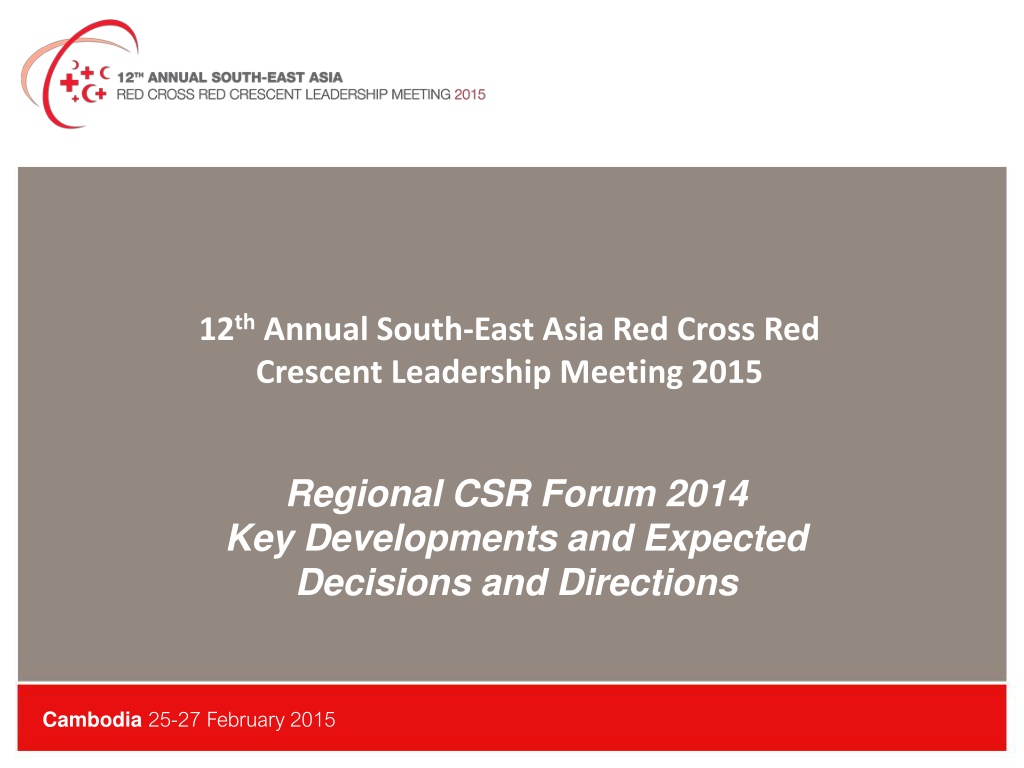


![READ⚡[PDF]✔ Emerging Space Powers: The New Space Programs of Asia, the Middle Ea](/thumb/21554/read-pdf-emerging-space-powers-the-new-space-programs-of-asia-the-middle-ea.jpg)




